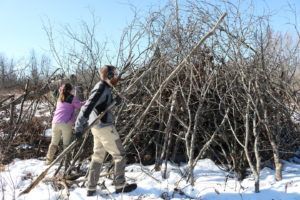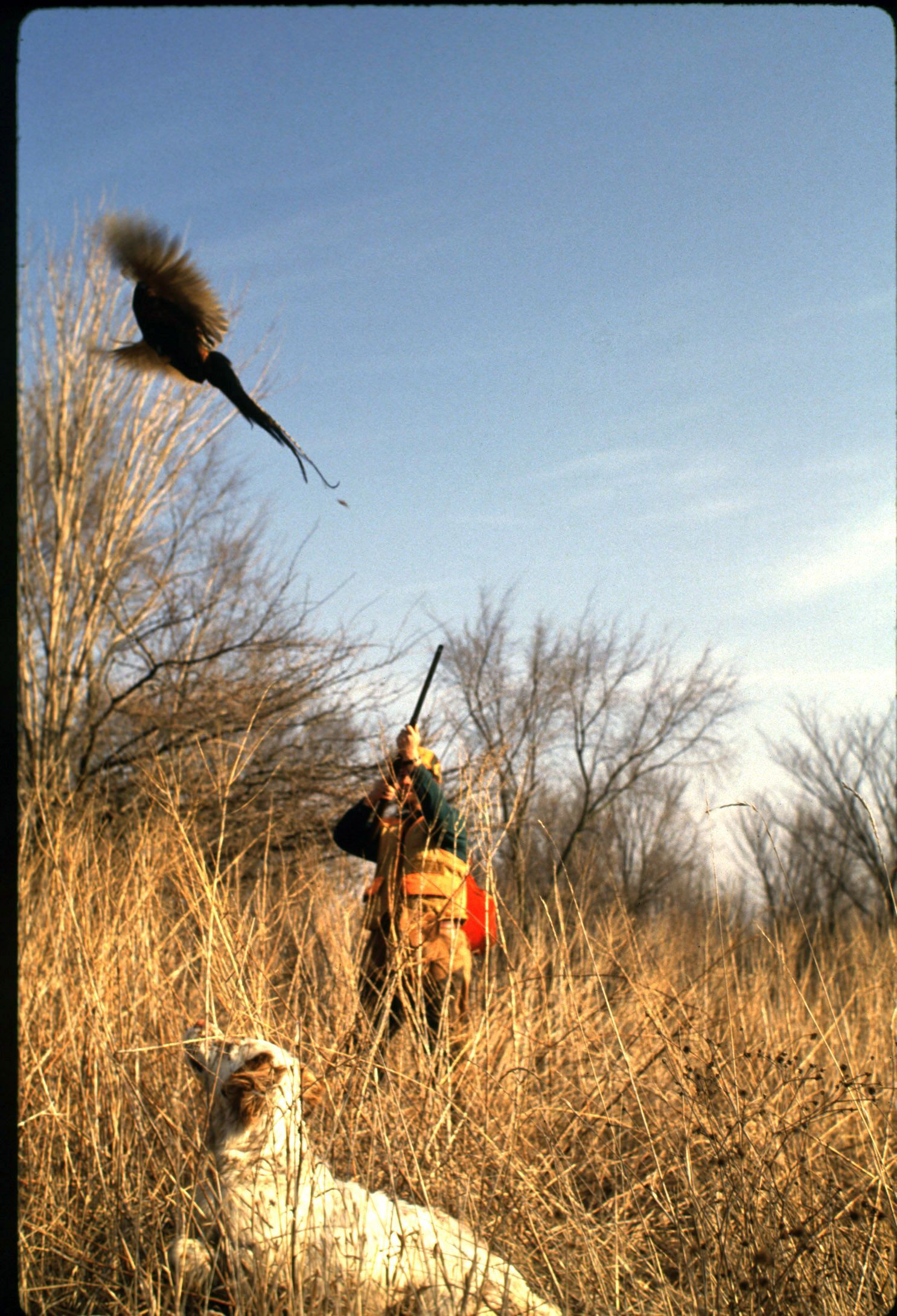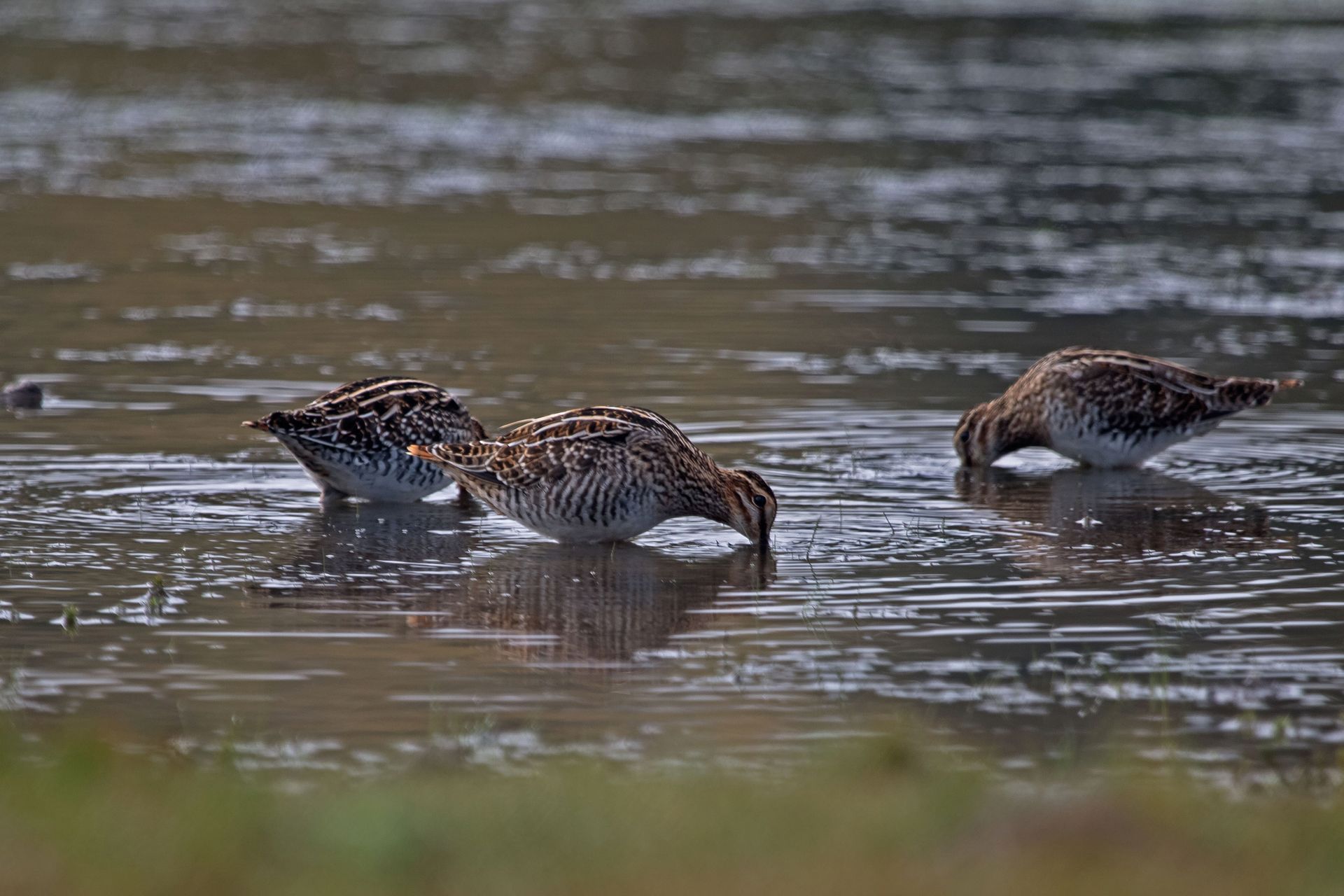The Importance of Brush Piles

In March, the On the Ground program of MUCC will be hosting two events; hunting blind and shooting lane maintenance in Clare county within the Kleekamp tract of the Gladwin SGA on 03/05/2022 and small game habitat at Gourdneck State Game Area with the Kalamazoo Conservation District on 03/26/2022. At Gourdneck State Game Area we will be building brush piles for wildlife.
A brush pile, often called “rabitatt,” is a structure made up of debris found in the area. Fallen trees and removed invasive species like autumn olive are common building materials. Everything is stacked up to create large piles.
A pile of sticks does not seem like much to us, but brush piles provide vital habitat for wildlife in the area. The structures are places to nest, build dens, hide from predators and escape dangerous situations. If insects live in the brush piles, they can be considered food sources for insectivores. Brush piles affect many aspects of wildlife survival and provide resources that the current ecosystem may lack. The newly available habitat increases the biodiversity of an area.
Snowshoe hare, or in the case of the Gourdneck SGA cottontail rabbit, are often residents of brush piles. Snowshoe hair change colors depending on the season, they are white in the winter and red-brown in the summer. The long hair growing on their feet allow them to walk on the snow without sinking. Owls and coyotes are predators of cottontail and snowshoe hare. The brush piles protect the rabbits and hare from these predators. Brush piles are a haven for both of these species.
Brush piles are also beneficial for hunters who love the small game. By creating new habitat for small game, they can continue hunting a viable population. Brush piles are an easy way to create more habitat on public and private lands.
If you would like to help in our efforts to create habitat supporting diverse wildlife populations, join us on 03/26/2022 at the Gourdneck State Game Area, where we will be building brush piles with the help of the Kalamazoo Conservation District. To register, click here .
If you would like to contribute to any other OTG events including volunteering at the Clare County project click here .
The post The Importance of Brush Piles appeared first on Michigan United Conservation Clubs.



